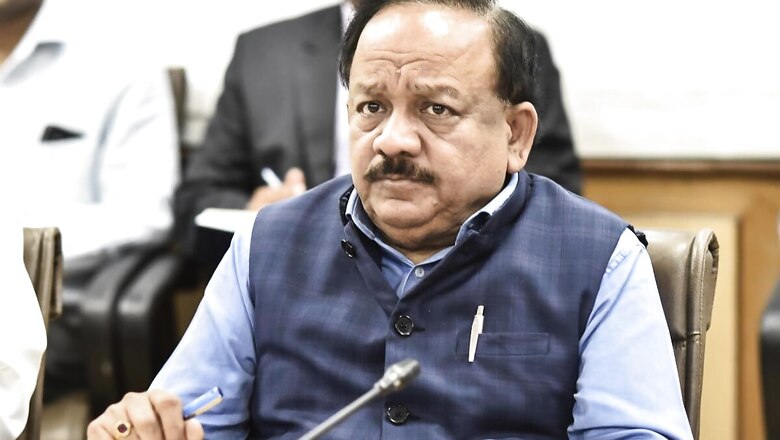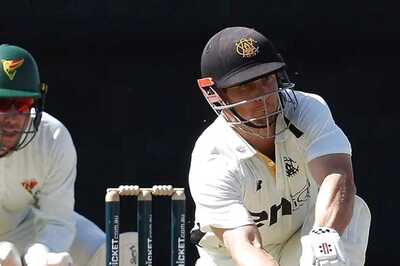
views
New Delhi: India has adopted strategies to ensure that there are increased investments in health and emergency preparedness to prevent future pandemics, Health minister Harsh Vardhan on Thursday said. He made these comments at the 73rd session of WHO South East Asia Region (SEARO) through video conference, the health ministry said in a statement, He first spoke on the three important interventions that were applied to manage COVID-19 and maintain essential non-COVID health services in India. He later expounded on the strategies that are being applied to ensure that there are increased investments in health and health emergency preparedness and response as well as in international health regulation core capacities to prevent future pandemics, in the second round of interventions, it said.
Speaking on India’s public health measures to prevent and contain spread of SARS nCoV-2 since January, Vardhan outlined the measures undertaken by the government such as issuing of travel advisories, creation of facilities for quarantine of persons returning from countries which reported cases of COVID-19, issuing of guidelines for community level surveillance and also scaling up of testing facilities, tracking and testing of all suspect cases among others. He also highlighted the increasing domestic production capacity of PPE, ventilators and other medical items required for treatment of COVID-19 patients which has resulted in India’s resilience in the health sector. He stated that India has developed guidelines for infection prevention and control, testing protocol, clinical management and bio-medical waste management as well as the guidelines to be followed by COVID and non-COVID health facilities. He mentioned the development of a web-based portal for states and union territories to report about testing, hospital admissions, discharged patients, deaths and also to make readily available future estimates of their requirement of medical items for COVID-19 patients.
“Directives were also issued to all states and UTs to provide non-COVID essential healthcare services,” he was quoted as saying in the statement. Speaking on the three important interventions that India undertook for management of COVID and maintain essential non-COVID health services, he mentioned the country’s exponential scaling up of testing from one lab in January to 1678 labs at present which can conduct a million tests daily, the effective clinical management provided by the three tier COVID healthcare involving the development of guidelines for asymptotic to mild, moderate and severe cases by the medical community and their continuous review.
He also spoke about the country’s commitment to provide non-COVID essential care by providing life saving healthcare to patients with chronic ailments, malignancies, blood disorders, the pregnant and the elderly and those with emergent conditions that require urgent attention. During the session, he expounded on the strategies being implemented in the medium to long term to strengthen core capacities under the international health regulations of WHO in order to augment the health, health emergency preparedness and response to prevent adverse effects of future pandemics in India.















Comments
0 comment